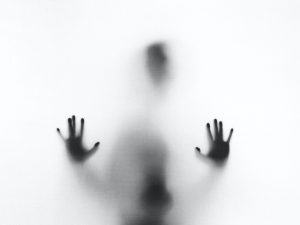 Atypical depression is a form of major depressive disorder.
Atypical depression is a form of major depressive disorder.
It is very difficult to diagnose because the symptoms of the disease can be similar to the symptoms of other disorders, such as normal fatigue, stress, or even metabolic disorders.
In addition, certain negative manifestations do not always occur simply due to exhaustion or a difficult stage in life.
Your therapist should no doubt be one of the first to tell you about your symptoms. Remember, they can sometimes hide behind being overweight or drowsy.
In today’s article, we want to talk in more detail about what atypical depression is and highlight its characteristic features that you need to remember.
Atypical depression – when the body hurts because the soul suffers
Most doctors follow a basic protocol for determining depression: constant negative thoughts, feelings of helplessness, insomnia, and suicidal tendencies.
Based on these symptoms, they can make a more accurate diagnosis to determine the type of depression. After that, specialists will decide which treatment should be followed: pharmacological or therapeutic.
However, atypical depression hardly makes itself felt until a person has suicidal thoughts. Of course, this is a serious alarm signal for the patient and his family to seek help.
However, before that, the patient’s quality of life already has time to deteriorate significantly.
Let’s consider together the main characteristics of atypical depression.
Physical symptoms
People with atypical depression often gain weight for no apparent reason.
It is not enough to just feel hungrier or anxious than usual. In fact, human metabolism changes and, as a result, fat accumulates much more easily.
Another common symptom is fatigue and physical pain, especially in the arms and legs. They can seem very heavy, so much so that at certain times of the day you will find it difficult to move.
Because of this exhaustion, you have little or no desire to engage in daily activities. As a result, you may even stop participating in regular social activities.
Hypersomnia
People with atypical depression sleep extremely long.
They can sleep without a break for up to 10 hours. Because of this, patients constantly experience fatigue, and weakness, and perceive reality as a dream that cannot be controlled.
Hypersensitivity
Because of atypical depression, you will feel irritable, have a bad mood, and will not be able to receive positive emotions.
In this state, a person perceives good news, rest, laughter, and fun at a certain distance. They may seem annoying or even incomprehensible.
Patients with atypical depression may think that all their endeavors will always end badly, so do not act or show any reaction, because they have no control over anything.
Periods of heightened anxiety
Increased anxiety is also associated with this type of depression.
Quite often there are periods of rest and fatigue, as well as months of stress, nervousness, and anxiety.
Obviously, this can seriously affect the work and social life of the patient.
Who is prone to atypical depression?
Atypical depression affects both women and men.
As always in the case of this type of disease, there are some people who need to seek professional help and those who can better cope with their experiences or master emotions.
On the other hand, there is no clear or single factor that leads to atypical depression. This is a multifaceted phenomenon.
Consider the possible reasons in more detail.
Possible reasons
Quite often atypical depression can occur due to a genetic predisposition.
If your parents have suffered from this disease, you are more likely to fall victim to it when you face a difficult life event, such as the loss of a loved one, a breakup, traumatic experiences, and so on.
Experts explain that atypical depression usually develops as a combination of two factors: an accident or injury and a genetic predisposition to depression.
In other cases, it can occur due to an excessive number of problems and troubles that befall a person at the same time. Bad family relationships, dissatisfaction with one’s life, daily stress, and problems in learning to control one’s emotions cause such a mental state.
Treatment
The treatment of this disease consists of many components. It includes medical drugs, psychological therapy, social support, and lifestyle changes.
Atypical depression usually occurs and disappears within two years. However, this is a subcategory of normal depression.
In other words, the person who has become a victim goes through trials that will be overcome by the support of family and friends, vigilance, patience, and compassion.
Picture Credit: Unsplash
